
The center for secure distributed ledgers and contracts is an initiative of TU Darmstadt together with strategic industry and academic partners for research and development of distributed ledger technologies and applications.
Our main vision is to develop secure and scalable decentralized blockchain technology using sound scientific methods, and transforming new ideas from proof-of-concepts into real-world systems. The center offers strong expertise in cryptography, IT security, programming languages and distributed systems to build future trustworthy blockchain-based solutions. In addition the center provides consulting and training for the industry. Together with our industry partners we aim for real-world impact in shaping the blockchain ecosystem of tomorrow.
Performance & scalability
Confidentiality & privacy
Security by design
Real world connectivity
Compliance & business
While the main application of blockchains are crypto-currencies, blockchains are recently more and more used as general-purpose databases or key-value stores. However, a major problem is that existing implementations such as Ethereum or Hyperledger provide too low throughput and that they do not scale. In this project, we develop novel architectures for high-performance scalable blockchains that can sustain the requirements of modern data-driven applications.
We design tools for correct and secure smart contracts and provide formal analysis of smart contract based applications. We also investigate legal aspects that are needed for guaranteed code execution.
In this project, we investigate applications of distributed ledger technology and smart contracts for finance, energy, the IoT and several other areas.
This project uses advanced security hardware technologies to protect the distributed ledger applications against run-time attacks.
Perun network is a system of payment and state channels over Ethereum. Perun's channels can be virtual, which means that the payments over longer chains of channels do not require interaction with the intermediate parties.
Most of currently deployed distributed ledger technologies are not prepared to be applied in a post-quantum world. PQChain is a distributed ledger protocol that is secure against future quantum computer attacks.
This project aims at developing privacy preserving blockchain technology and using smart contracts for building fair multi-party computation.
The Center for Distributed Ledger provides a forum to discuss and elaborate on the most recent results in the area of distributed ledgers and smart contracts. In particular, it provides a lecture series where active researchers and developers from academia and industry discuss their most recent projects and results.
Organizers: Prof. Sebastian Faust and Prof. Ahmad-Reza Sadeghi, TU Darmstadt
Date: April 5, 2019
Location: Maschinenhaus S1|05, TU Darmstadt, Magdalenenstraße 12, 64289 Darmstadt (see on Google Maps)
Agenda:
| 10:00 – 10:15 | Registration & Welcome |
| 10:15 – 11:00 | Security And Privacy for Payment Channel NetworksMatteo Maffei, TU Wien |
| 11:00 – 11:45 | Hopping Across a State Channel Network: Realizing Multi-Hop TransactionsStefanie Roos, TU Delft |
| 11:45 – 12:30 | Making Contracts Smart Again: From FairSwap and Perun to FastKittenLisa Eckey, TU Darmstadt |
| 12:30 – 13:30 | Lunch |
| 13:30 – 14:15 | SmarTor: Smarter Tor with Smart ContractsAlexandra Dmitrienko, University of Wuerzburg |
| 14:15 – 15:00 | Cryptographic Privacy Technologies for CryptocurrenciesTim Ruffing, Blockstream |
| 15:00 – 15:30 | Coffee break |
| 15:30 – 16:15 | Towards Secure and Scalable Blockchain TechnologiesGhassan Karame, NEC Research |
| 16:15 – 17:00 | Protecting the Immutable: Can We Prevent Re-Entrancy Attacks Against Deployed Smart Contracts?Lucas Davi, University of Duisburg-Essen |
Supported by 
Feb 18, 2019. Our paper, FastKitten: Practical Smart Contracts on Bitcoin, by Poulami Das, Lisa Eckey, Tommaso Frassetto, David Gens, Kristina Hostáková, Patrick Jauernig, Sebastian Faust, and Ahmad-Reza Sadeghi, was accepted at USENIX Security Symposium 2019. In this work, we enable fast execution of interactive smart contracts on Bitcoin and symilar blockchains.
Feb 1, 2019. Our paper, Multiparty Virtual State Channels, by Stefan Dziembowski, Lisa Eckey, Sebastian Faust, Julia Hesse and Kristina Hostáková, was accepted at 38th Annual International Conference on the Theory and Applications of Cryptographic Techniques (Eurocrypt). In this work we present the first full specification of a state channel network that supports virtual multi-party state channels, i.e. state channels that can be created and closed without blockchain interaction and that support contracts with >2 parties. Additionally, through a new mechanism, called direct dispute, the worst case time complexity of our protocol is constant for arbitrary complex channels. This is in contrast to the existing virtual state channel construction that has worst case time complexity linear in the number of involved parties. In addition to the new construction, the paper provides a comprehensive model for the modular design and security analysis.
Aug 1, 2018. Our paper, Perun: Virtual Payment Hubs over Cryptocurrencies, by Stefan Dziembowski, Lisa Eckey, Sebastian Faust, and Daniel Malinowski, was accepted at IEEE Symposium on Security and Privacy 2019. In this work, we introduce Perun, a system that combines payment channels allowed on cryptocurrencies. We present a new technique called "virtual payment channels" which avoids interaction with intermediaries for every single payment.
Aug 1, 2018. Our paper, Foundations of State Channel Networks by Stefan Dziembowski, Sebastian Faust and Kristina Hostakova, was accepted at ACM Conference on Computer and Communications Security 2018. An extension of virtual payment networks to cryptocurrencies are so-called state-channel networks. In addition to simple virtual off-chain payments, they enable the execution of complex smart contracts in dicrect channels and channel networks. In this work, we givea first full specification for general state channel networks. Moreover, we provide formal security definitions and develop security proofs showing that our construction satisfies security against powerful adversaries.
Our other accepted paper is FairSwap: How to fairly exchange digital goods, by Stefan Dziembowski, Lisa Eckey, and Sebastian Faust. In this paper we introduce FairSwap - a new protocol for a fair exchange of digital goods over smart contracts. Our solution has two distinctive features that make it particularly interesting for large files: the cost of running the smart contract on the blockchain is minimal, and instead of expensive cryptographic tools such as zero-knowledge proofs, simple hashing techniques are sufficient.
May 17, 2018. The German Research Foundation (DFG) approved the second funding phase for the Collaborative Research Center CROSSING which has been existing at TU Darmstadt since 2014. We are very pleased that a new project "Secure and Scalable Blockchain Technology" was successfully integrated into the CROSSING phase II.
May 2, 2018. $250K granted to Perun by the Ethereum Foundation.
April 19, 2018. New Ethereum Tech Calls on Slavic Gods for Security.
April 18-20, 2018. Associated partner Prof. Stefan Dziembowski is visiting the Distributed Ledger Center to work on Blockchain Technology.

Prof. Sebastian Faust
Co-DirectorApplied Cryptography Lab

Prof. Ahmad-Reza Sadeghi
Co-DirectorSystem Security Lab
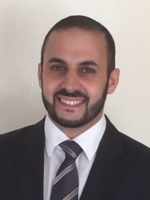
Dr. Rachid El BansarkhaniQuantiCor SecurityPost-Quantum Cryptography and Blockchain Protocols
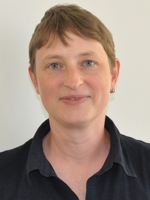
Dr. Sonja BergstraesserKOM – Multimedia Communications LabSmart Contracts and Smart Applications

Prof. Johannes A. BuchmannCryptography LabPost-Quantum Cryptography and Blockchain Protocols

Prof. Peter BuxmannSoftware & Digital Business GroupIndustry-specific potentials and related business values of blockchain technology applications

Prof. Carsten BinnigData Management LabScalable data management, cloud databases, transaction processing

Prof. Stefan KatzenbeisserSecurity Engineering GroupPrivacy Enhancing Technologies, Critical Infrastructures

Prof. Mira MeziniSoftware Technology GroupVulnerability Analysis for Smart Contracts

Prof. Max MühlhäuserTelecooperation groupTrust and Privacy for Humans and Cyber-physical Systems

Prof. Christian ReuterScience and Technology for Peace and SecurityHuman Computer Interaction, Blockchain Technologies for Governance Transparency, Consensus Schemes for Peace
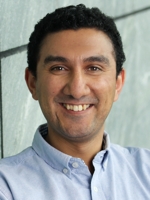
Dr. Amr RizkKOM – Multimedia Communications LabDistributed Information Supply Chains

Prof. Thomas SchneiderCryptography and Privacy EngineeringPractical Secure Computation, Privacy Enhancing Technologies
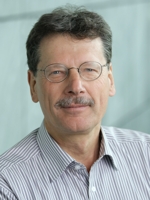
Prof. Ralf SteinmetzKOM – Multimedia Communications LabAdaptive Blockchain Systems
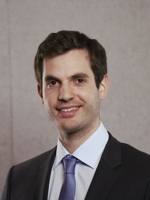
Nikolaos AlexopoulosTelecooperation groupTrust Management in Distributed Systems
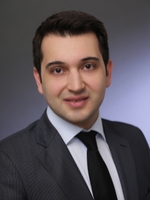
Raad BahmaniSystem Security Lab Smart Contract Vulnerabilities

Ferdinand BrasserSystem Security Lab Smart Contract Vulnerabilities

Lisa EckeyProvable Security of Smart Contracts, Decentralized Applications, Consensus Protocols
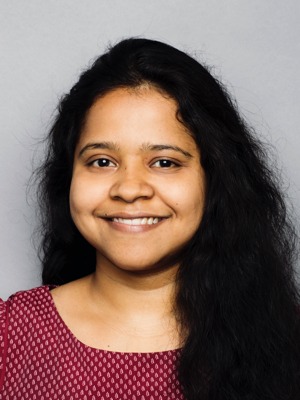
Poulami Das

Muhammad El-HindiData Management LabScalable and Trusted Key-Value Stores and Databases
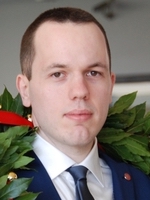
Tommaso FrassettoSystem Security LabTrusted Computing, Hardware-Assisted Security

Matthias GeihsCryptography LabLong-Term Security and Blockchain Protocols
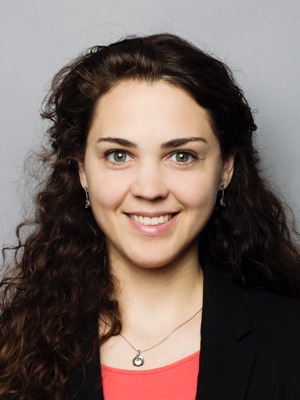
Kristina HostakovaProvable Security for Blockchain Protocols

Patrick JauernigSystem Security Lab Smart Contract Vulnerabilities
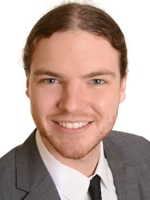
David KoisserTU Darmstadt
& European Space Agency (ESA)
Blockchain in Space

Markus MiettinenSystem Security LabScalable Consensus Technologies in IoT Applications

Dr. Nadine OsternSoftware & Digital Business GroupIndustry-specific potentials and related business values of blockchain technology applications
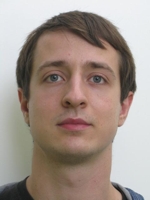
Oleksandr TkachenkoCryptography and Privacy EngineeringMulti-Party Computation, Privacy Enhancing Technologies

Prof. N. AsokanSecure Systems Research Group, Aalto University, FinlandTrusted Systems, Consensus Schemes

Prof. Lucas DaviUniversity of Duisburg-Essen, GermanySoftware and System Security
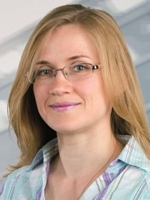
Prof. Alexandra DmitrienkoSecure Software Systems Research Group, University of Würzburg, GermanySecurity of Distributed Systems, Self-Healing Smart Contracts, Mobile Cryptocurrencies

Prof. Stefan DziembowskiCryptology and Data Security Group, University of Warsaw, PolandCryptographic Foundations, Smart Contracts
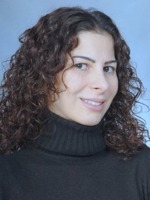
Prof. Farinaz KoushanfarAdaptive Computing and Embedded Systems Lab, University of California San Diego, USAAdverserial Machine Learning, Hardware Security

Prof. Paul MüllerTU Kaiserslautern, adjunct to KOM – Multimedia Communications LabBlockchain Architectures and Protocols

Prof. Philipp SandnerBlockchain School, Frankfurt School of Finance & ManagementBusiness, Economics and Research Transfer
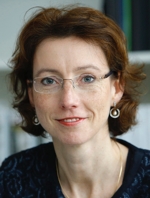
Prof. Indra SpieckerGoethe University of Frankfurt am Main, GermanyPublic Law, Information Law, Environmental Law, Legal Theory

Prof. Ivan ViscontiUniversity of Salerno, ItalyCryptographic Foundations, Security Protocols

Prof. Moti YungAdjunct Professor, Columbia University, USA








Lecture on Cryptocurrencies 3+1 (6 ETCS), TU Darmstadt. Lecturer: Sebastian Faust.
Topics include: eCash protocols, Bitcoin fundamentals, consensus, smart contracts, cryptocurrency attacks anonymity and many more
Programming Cryptocurrencies (6 ETCS), TU Darmstadt. Lecturer: Sebastian Faust and Ahmad-Reza Sadeghi.
The goal of the course is to develop a cryptocurrency project in a team of up to 3 students.
Seminar “Blockchain Technology” (3 ECTS), TU Darmstadt. Lecturer: Prof. Buchmann and Dr. El Bansarkhani.
Cryptography Lab “Various Topics on Blockchains” (6 ECTS), TU Darmstadt. Lecturer: Prof. Buchmann and Dr. El Bansarkhani.
Lecture on Cryptographic Protocols 2+2 (6 ETCS), TU Darmstadt. Lecturer: Thomas Schneider.
Lecture series on Distributed Ledgers and smart Contracts, TU Darmstadt.
Lecturers: Prof. Dr.-Ing. Lucas Davi (University of Duisburg-Essen), Dr. Ghassan Karame (NEC Research), Dr. Tim Ruffing (Blockstream), Kristina Hostakova (TU Darmstadt)
Lecture on Cryptographic Protocols 2+2 (6 ETCS), TU Darmstadt. Lecturer: Thomas Schneider.